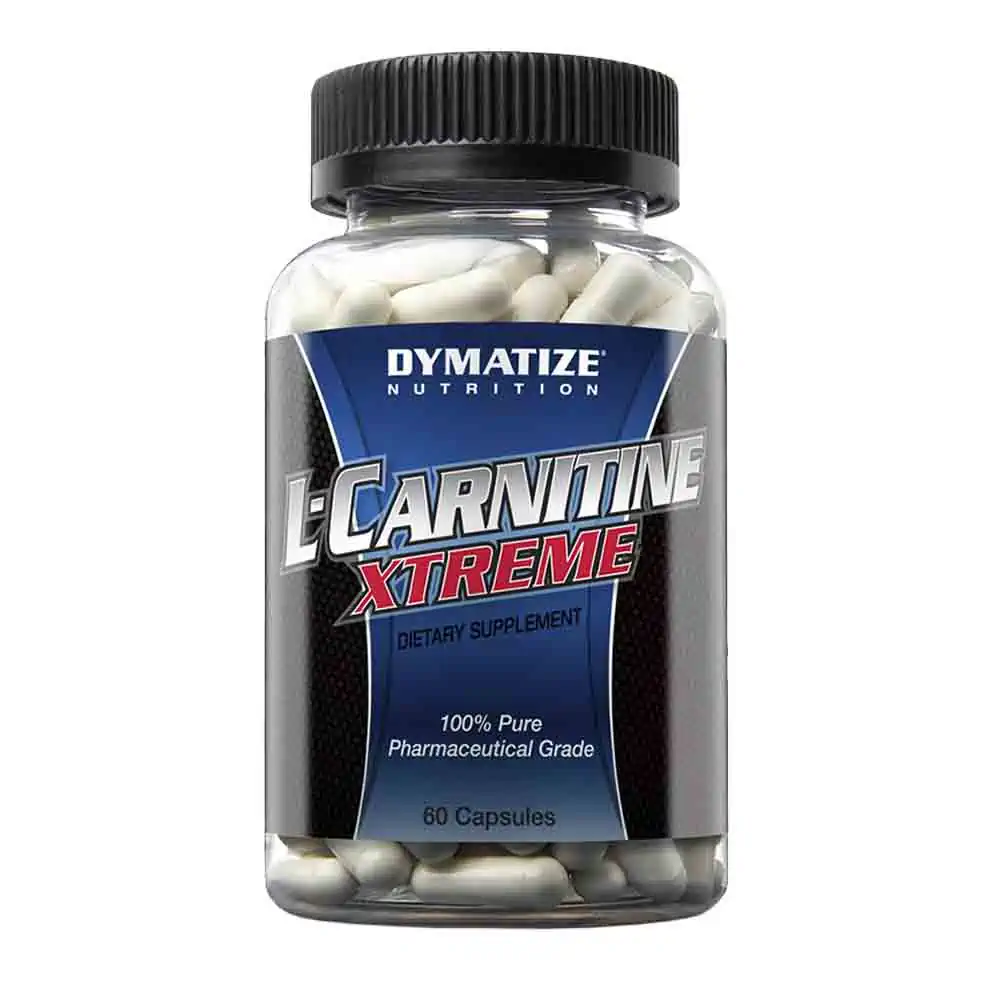Does supplementing with L-Carnitine really help you lose weight?
L-Carnitine is one of the best-known supplements when it comes to losing weight.
Whether in ampoules or capsules, liquid or powder, if you haven't taken it, I'm sure you know someone who has.
The big question is. Does it work?
First of all, L-Carnitine has several benefits, but let's just focus on fat loss.
So let's get started.
What is L-Carnitine?
AL Carnitine is a compound that is synthesized by the body, through lysine and methionine.
In addition to being synthesized through these amino acids, it is found naturally in some foods, especially meat.
| Food | L-Carnitine quantity per 100g |
| Beef | 95mg |
| Pork | 27.7mg |
| Bacon | 23.3mg |
| Cod | 5.6mg |
| Chicken breast | 3.9mg |
The big theory behind the use of this supplement by those who want to lose weight is that this compound promotes greater use of fats.
This on paper makes sense, as L Carnitine binds to fatty acids and allows them to enter the mitochondria to be used as energy.
Theoretically, by increasing Carnitine levels, more fatty acids would be used as energy, and thus more fat would be burned.
But what makes sense in theory is not always confirmed in practice.

The Absorption of L Carnitine
The absorption of L-Carnitine through food is 54% to 87%, while through supplementation it is only 14% to 18%.(1)
In other words, when you drink that vial with a horrible taste, only 14% to 18% is actually absorbed.
Furthermore, it is important that this L Carnitine reaches the muscle, and that is not exactly what happens. (9)
But let's get to what really matters.
Benefits (or lack thereof) of L Carnitine.
For this, there is nothing like using scientific studies that evaluated the topic.
AL Carnitine does not work
Unfortunately, there are not many studies regarding L-Carnitine in fat loss, but we will use what exists.
Second This one study, a low-calorie diet with L-Carnitine supplementation did not have any advantage in terms of fat loss compared to a low-calorie diet without L-Carnitine. (two)
This study was done on rats.
Now let's move on to humans.
In this study compared moderately obese women, in which one group used 4g of L-Carnitine per day for eight weeks, while the other group did not. (3)
There was no difference between groups in terms of results.
In this study looked at whether L-Carnitine could actually promote greater fat utilization, and the results indicated that it could not. (4)
Here it was evaluated whether L-Carnitine could promote fat loss in medicated bipolar people.
Two groups were created, both following similar diets, with one group using an L-Carnitine supplement and the other not, for 26 weeks.
The results were similar between the two groups. (5)
It is complicated.
Does L-Carnitine really not work?
L-Carnitine works
In this study, 66 people were recruited to test the effectiveness of this supplement. (6)
These 66 people were separated into two groups, one of which received 2g of L-Carnitine per day, while the other did not.
The results were positive, with not only a decrease in body fat, but also an increase in muscle mass.
There's just one problem.
The people who participated in this study were centenarians, that is, people over 100 years old.
If you are over 100 years old, this study shows that this supplement works.
This one study proves the same, loss of fat mass and increase in muscle mass. (7)
For last, we left the best.
In 2011, a study was presented that showed that supplementation with this compound can actually be effective.
This one study shows that L-Carnitine supplementation, together with carbohydrates, leads to a significant increase in carnitine in muscle, and a consequent increase in fat oxidation.
The form of Carnitine used in this study was L-Tartrate, in a dose of 2g together with 80g of carbohydrates, twice a day. (8)
Now the bad news.
Its effectiveness only exists in the long term, taking 6 months for L-Carnitine to show good results.
Conclusion
If L-Carnitine works in healthy people, in a fat loss component, it will only be in the long term.
Those who may also benefit from this supplement are people with low levels of carnitine.
This occurs commonly in the elderly, where studies show there is benefit, and vegetarians, who do not have a significant dietary source of L-Carnitine.
The balance we can draw from these studies is simple, although not conclusive, as more participants would be needed to do so.
L-Carnitine is not an effective supplement for losing fat in healthy people.
However, if you have low levels of Carnitine, it may be useful.
Other than that, we only have one interesting study showing some long-term results, and a period that practically no one follows with this product.
Basically, a supplement that makes sense in theory, but doesn't seem to translate into results in practice.
References (1) Rebouche CJ. Kinetics, pharmacokinetics, and regulation of L-carnitine and acetyl-L-carnitine metabolism. Ann NY Acad Sci 2004 Nov;1033:30-41. (2) Brandsch C, Eder K. Effect of L-carnitine on weight loss and body composition of rats fed a hypocaloric diet. Ann Nutr Metab. 2002;46(5):205-10. (3) Villani RG, Gannon J, Self M, Rich PA. L-Carnitine supplementation combined with aerobic training does not promote weight loss in moderately obese women. Int J Sport Nutr Exerc Metab. 2000 Jun;10(2):199-207. (4) Broad EM, Maughan RJ, Galloway SD. Carbohydrate, protein, and fat metabolism during exercise after oral carnitine supplementation in humans. Int J Sport Nutr Exerc Metab. 2008 Dec;18(6):567-84. (5) Elmslie JL, Porter RJ, Joyce PR, Hunt PJ, Mann JI. Carnitine does not improve weight loss outcomes in valproate-treated bipolar patients consuming an energy-restricted, low-fat diet. Bipolar Disorder. 2006 Oct;8(5 Pt 1):503-7. (6) Malaguarnera M, Cammalleri L, Gargante MP, Vacante M, Colonna V, Motta M. L-Carnitine treatment reduces severity of physical and mental fatigue and increases cognitive functions in centenarians: a randomized and controlled clinical trial. Am J Clin Nutr. 2007 Dec;86(6):1738-44. (7) Pistone G, Marino A, Leotta C, Dell'Arte S, Finocchiaro G, Malaguarnera M. Levocarnitine administration in elderly subjects with rapid muscle fatigue: effect on body composition, lipid profile and fatigue. Drugs Aging. 2003;20(10):761-7. (8) Wall BT, Stephens FB, Constantin-Teodosiu D, Marimuthu K, Macdonald IA, Greenhaff PL. Chronic oral ingestion of L-carnitine and carbohydrate increases muscle carnitine content and alters muscle fuel metabolism during exercise in humans. J Physiol. 2011 Feb 15;589(Pt 4):963-73. (9) Barnett C, Costill DL, Vukovich MD, Cole KJ, Goodpaster BH, Trappe SW, Fink WJ. Effect of L-carnitine supplementation on muscle and blood carnitine content and lactate accumulation during high-intensity sprint cycling. Int J Sport Nutr. 1994 Sep;4(3):280-8.




